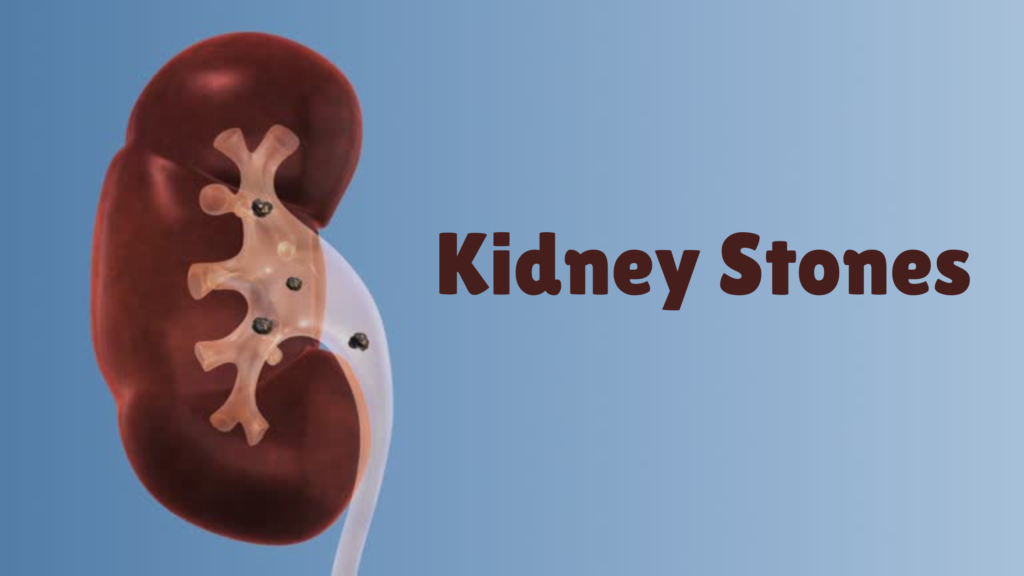🧬 What Are Kidney Stones?
Kidney stones, or renal calculi, are hard deposits made of minerals and salts that form inside the kidneys. They can vary in size—from as small as a grain of sand to as large as a golf ball—and may remain in the kidneys or travel down the urinary tract, causing pain and potential complications.pacehospital.com+1verywellhealth.com+1
🔬 Types of Kidney Stones
- Calcium Oxalate Stones: The most common type, formed when calcium combines with oxalate in the urine.
- Uric Acid Stones: Develop when urine is too acidic, often due to high purine intake from foods like red meat and shellfish.
- Struvite Stones: Result from urinary tract infections and can grow large quickly.
- Cystine Stones: Rare and hereditary, caused by a genetic disorder that leads to high cystine levels in urine.
⚠️ Symptoms to Watch For
- Severe pain in the back, side, lower abdomen, or groin
- Painful urination
- Blood in urine (hematuria)
- Cloudy or foul-smelling urine
- Frequent urination or inability to urinate
- Nausea and vomiting
- Fever and chills (if infection is present)
🧪 Causes and Risk Factors
- Dehydration: Not drinking enough fluids can lead to concentrated urine, increasing the risk of stone formation.
- Diet: High intake of salt, sugar, and oxalate-rich foods (like spinach and nuts) can contribute to stone development.
- Medical Conditions: Conditions such as gout, hyperparathyroidism, and urinary tract infections can predispose individuals to kidney stones.
- Family History: Genetics play a significant role; a family history of kidney stones increases the likelihood of developing them.
🛠️ Treatment Options
- Small Stones: Often pass on their own with increased fluid intake and pain management.
- Medications: Alpha blockers can help relax the muscles in the urinary tract, facilitating stone passage.
- Extracorporeal Shock Wave Lithotripsy (ESWL): Uses sound waves to break stones into smaller pieces.
- Surgical Procedures: In cases where stones are too large or cause complications, procedures like percutaneous nephrolithotomy may be necessary.
🛡️ Prevention Tips
- Stay Hydrated: Aim to drink enough water to produce clear or nearly clear urine.
- Dietary Adjustments: Limit intake of salt, animal proteins, and oxalate-rich foods.
- Monitor Calcium Intake: Ensure adequate calcium intake from dietary sources; avoid excessive calcium supplements.
- Regular Check-ups: For those with a history of kidney stones, regular medical check-ups are essential.
